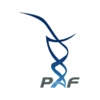PAF Awards $50,000 New Research Grant
PI: Sander Houten, Ph.D., Department of Genetics and Genomic Sciences,
Icahn Institute for Data Science and Genomic Technology, Icahn School of Medicine at Mount Sinai, NY, US
Co-PI: Robert J. DeVita, Ph.D., Department of Pharmacological Sciences, Drug Discovery Institute,
Icahn School of Medicine at Mount Sinai, NY, US
“Substrate reduction as a novel therapeutic strategy for propionic acidemia”
Amino acid metabolism and in particular the degradation of valine and isoleucine are a significant source of propionyl-CoA, the substrate of propionyl-CoA carboxylase. Current treatment of propionic acidemia aims to decrease the degradation of valine and isoleucine through medical diets and avoidance of fasting. Drs Houten and DeVita, the investigators on this project, aim to develop a pharmacological substrate reduction therapy for propionic acidemia that limits the degradation of these amino acids. They propose to inhibit short/branched-chain acyl-CoA dehydrogenase (SBCAD) and isobutyryl-CoA dehydrogenase (ACAD8), which are involved in isoleucine and valine degradation, respectively. Inhibition of these enzymes is thought to be safe because in contrast to propionic acidemia, inherited defects of SBCAD and ACAD8 are thought to be benign conditions. In cell line models, inhibition of SBCAD using a genetic KO or an inhibitor was efficacious and led to a pronounced decrease in the propionyl-CoA carboxylase substrate. The investigators anticipate to find a few hit inhibitors of SBCAD and ACAD8 that can be further optimized and serve as a starting point for a broader translational drug discovery program for treatment of propionic acidemia.
Progress Update April 2022
In January 2021, we were grateful to receive a research grant from the PAF, which allowed us to start the development of pharmacological substrate reduction as a novel therapeutic approach for propionic acidemia. For this project, we hypothesize that we can achieve a clinically relevant reduction in the accumulation of propionyl-CoA carboxylase substrates by inhibiting enzymes that play a role in the degradation of branched-chain amino acids. Specifically, we propose to inhibit short/branched-chain acyl-CoA dehydrogenase (SBCAD) and isobutyryl-CoA dehydrogenase (ACAD8), which are involved in isoleucine and valine degradation, respectively. Inhibition of these enzymes is predicted to be safe because inherited defects of SBCAD and ACAD8 are thought to be benign conditions. In cell line models, inhibition of SBCAD using a genetic KO or an inhibitor was efficacious, leading to a pronounced decrease in propionyl-CoA derived metabolites. Inhibition of ACAD8 was less efficacious, which may be explained by overlap in substrate specificity between different acyl-CoA dehydrogenases. The goal of this project is to identify small molecule inhibitors of SBCAD and ACAD8 that can be further validated to serve as starting points for a broader translational drug discovery program for treatment of propionic acidemia. In order to achieve this goal, we used the research grant from the PAF to develop the in vitro biochemical and cellular assays useful to screen for chemical matter to establish if a small molecule has possibility to be an effective SBCAD or ACAD8 inhibitor. We have also performed a virtual screening to generate a list of candidate inhibitor molecules for SBCAD and ACAD8. Of these potential SBCAD inhibitors, 91 were purchased and tested in the SBCAD assay. Unfortunately, none of the compounds were able to inhibit SBCAD with high affinity likely as a result of limitations to the computational modeling of the enzyme structure. This result indicates that a larger unbiased high throughput screening is necessary to identify hit small molecule inhibitors for SBCAD. Our enzyme assay seems well suited for this approach and this approach has been successfully applied to two other enzyme targets under investigation by the team (DHTKD1 [1] and LOR domain of AASS (unpublished)).
The progress made with the PAF funds enabled us to propose this research project for the NIH Small Grant Program (R03) of the Eunice Kennedy Shriver National Institute of Child Health and Human Development (NICHD). This grant was awarded in September 2021, which allowed us to continue this work for the next 2 years. In collaboration with Drs. Vockley and Mohsen (University of Pittsburgh), we also applied for an NIH Research Project Grant (R01; The therapeutic potential of inhibition of acyl-CoA dehydrogenases involved in valine and isoleucine degradation). This proposal is currently under consideration.



